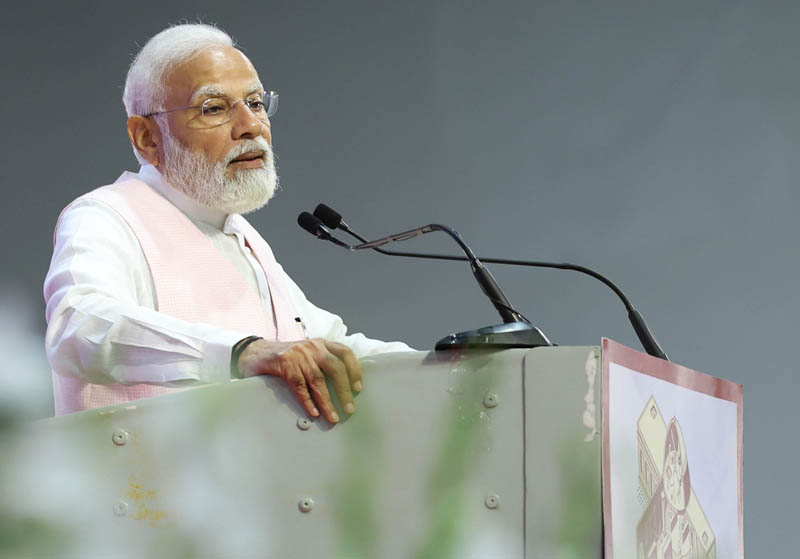NEW DELHI, May 19: India is fully prepared and committed to protecting its sovereignty and dignity, Prime Minister Narendra Modi said on Friday and asserted that the future development of the India-China relationship can only be based on mutual respect, mutual sensitivity and mutual interests.
Responding to questions over the India-China standoff in eastern Ladakh, Modi in an interview with the Japanese publication Nikkei Asia, also emphasised that peace and tranquility on the border are essential for normal bilateral ties among the neighbours.
‘India is fully prepared and committed to protect its sovereignty and dignity,” the Prime Minister said while stressing his country’s respect for sovereignty, the rule of law and the peaceful resolution of disputes.
He also made it clear that “the future development of the India-China relationship can only be based on mutual respect, mutual sensitivity and mutual interests” and noted that “normalising” the ties would benefit the wider region and the world.
India-China ties have been fraught since the Galwan clashes in June 2020. Both sides have been periodically holding meetings to defuse the crisis at the border but a lasting solution has eluded them so far.
On Pakistan, the publication quoted him as saying that India wants “normal and neighborly relations.”
“However, it is incumbent upon them to create a conducive environment free from terrorism and hostilities. The onus is on Pakistan to take necessary steps in this regard,” he said.
Speaking about the Indian economy, he noted that it has been one of the world’s fastest-growing.
“Our progress is evident, as we have risen from being the tenth largest economy in 2014 to now being the fifth largest globally… While it is true that global headwinds pose challenges to growth, we have built a strong foundation in recent years, which positions us favorably,” he said.
On the Russia-Ukraine conflict, Modi said India’s position on the matter “is clear and unwavering.”
“India stands on the side of peace and will remain firmly there. We are committed to supporting those who face challenges in meeting their basic needs, especially in the face of rising costs of food, fuel, and fertilizers. We maintain communication with both Russia and Ukraine,” Modi said.
“Cooperation and collaboration should define our times, not conflict,” he told Nikkei Asia.
The Prime Minister is on a three-nation trip to Japan, Papua New Guinea and Australia.
Earlier, Modi arrived in the Japanese city of Hiroshima to attend the annual summit of the G7 grouping and the third in-person Quad leaders’ meeting.
During the interview, he also said he will amplify the voices and concerns of the Global South, a reference for developing countries, at the Group of Seven (G7) summit in Hiroshima.
Referring to global changes and challenges in areas such as energy, digital technology and supply chains, he said, “I will emphasize India’s role as a reliable partner in addressing these challenges” and added that India’s experience would “resonate strongly at the meeting.”
On India’s ties with Japan, he said both countries shared values of democracy, freedom and the rule of law have naturally brought them closer.
India, which is not a G-7 member, was invited by host and Japanese Prime Minister Fumio Kishida.
“We now see a growing convergence in our political, strategic, security, and economic interests,” he told the publication.
Asked about the issue of United Nations reform amid India’s long and sustained bid for a permanent seat on the Security Council, Modi spoke of the “limitations” of global governance institutions that remain “confined to outdated mindsets.”
“These deficiencies have become evident in addressing contemporary challenges such as climate change, the COVID-19 pandemic, terrorism, and financial crises,” he said.
“The credibility of the UNSC and its decision-making process will always be questioned if it continues to deny representation on a permanent basis to the world’s largest democracy, as well as entire continents like Africa and Latin America.” (PTI)


